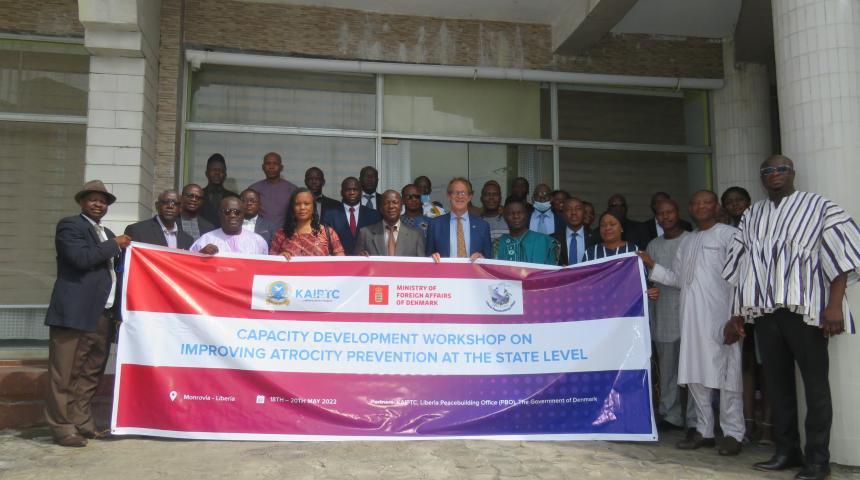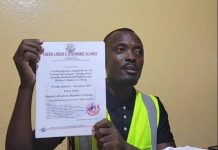Africa-Press – Liberia. The Kofi Annan International Peace Training Center (KAIPTC), based in Accra, Ghana has trained 45 state and non-state actors within the sub-region on how to improve atrocity prevention in member countries using the Responsibility to Protect (R2P) concept.
The concept of the R2P was initiated in 2005 by the United Nations to mandate governments to take necessary steps in addressing human rights abuses. Past genocide and human rights violations in countries including Bosnia-Herzegovina and Rwanda necessitated the adoption of the R2P norm by the UN.
The R2P urges member states to put in structures and mechanisms to protect populations from egregious crimes. The training workshop, which was held in Monrovia from May 18-20, brought together government officials, civil society actors, and members of the private sector from six countries within the sub-region including Liberia, Ghana, Sierra Leone, and Cote D’ Ivoire, The Gambia, and Nigeria.
It was organized by KAITC in collaboration with the Liberia Peacebuilding Office with support from the government of Denmark. Speaking during the close of the workshop on Friday at a local resort the Executive Director of the Liberia Peacebuilding Office, Edward Mulbah challenged the trainees or participants to utilize the knowledge acquired in order to help their respective countries in preventing atrocity.
Mulbah noted that although the participants have acquired the knowledge of the R2P the challenge they now face is how to translate the knowledge into actual work in the separate countries.
However, he said the challenges can be addressed by the trainees provided that governments of member countries are willing to demonstrate the political commitment to reducing atrocity.
“As we acquired the knowledge of the R2P, the challenge remains how to apply it in our respective countries,” he explained.
According to him, governments within the region must see reasons to domesticate the principles of the R2P. He explained that training has created a platform for state and non-state actors to share great insights and experiences about the atrocities committed in member countries.
Mulbah mentioned that different contexts of views expressed by the participants show that the R2P is being implemented in various countries to some extent. He asked the participants or trainees to apply the knowledge by holding workshops, and seminars, at offices, and in communities so as to minimize atrocity. Mulbah said in an exclusive with journalists that he would monitor the commitment of the Liberian participants in applying the knowledge acquired.
Liberia, like other nations in the region, is no exception to human rights violations. The Peacebuilding executive director recounted the works of his office to ensure that Liberians preserved the peace. For his part, Prof. Kwesi Aning, Director of the Faculty of Academic Affairs and Research at the KAIPTC said that his institution is making a lot of impact in many African countries on the knowledge of the R2P.
According to him, it will require collaborative efforts by member countries to reduce conflict and atrocity in the sub-region to make lives better for the citizens. Prof. Anning said he was grateful to the government of Liberia for hosting the workshop as well as thankful to the government of Denmark for the funding to implement the exercise.
Meanwhile, participants of the workshop have thanked KAIPTC for the workshop and have promised to apply the knowledge in their respective countries.
For More News And Analysis About Liberia Follow Africa-Press






